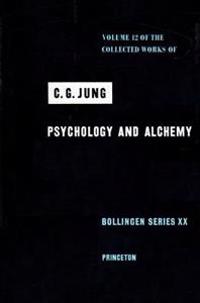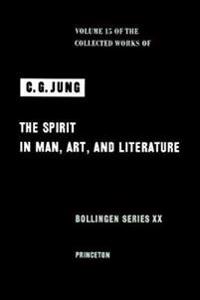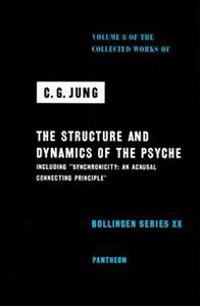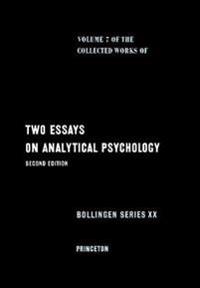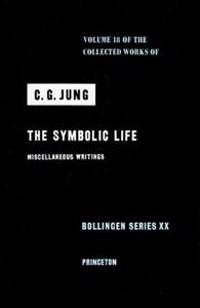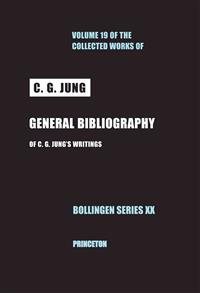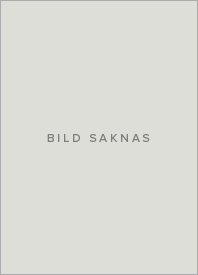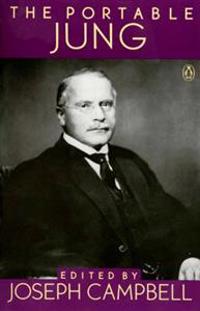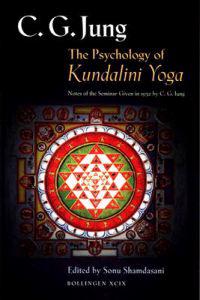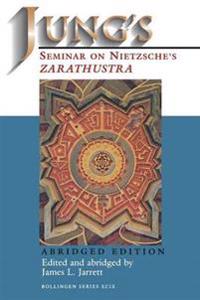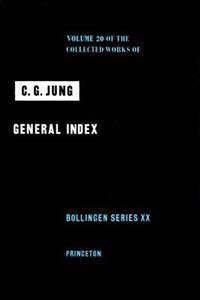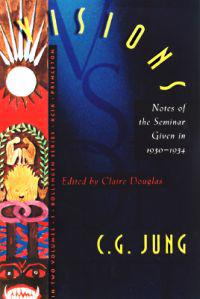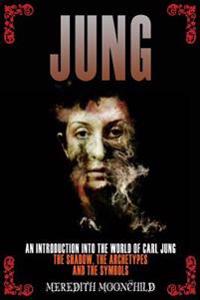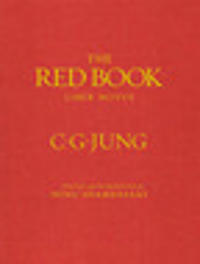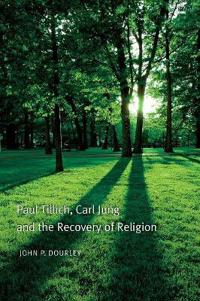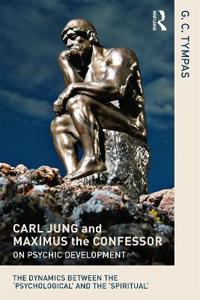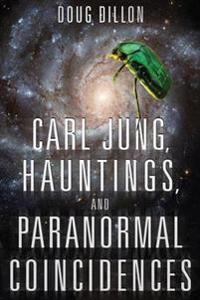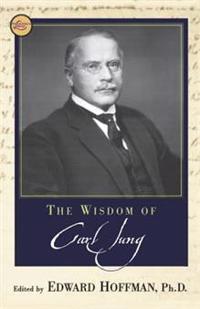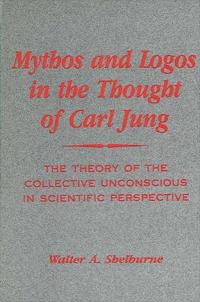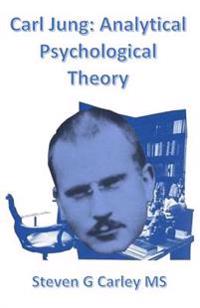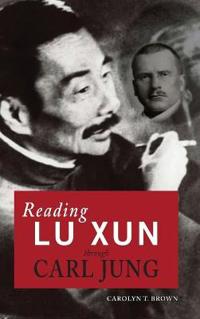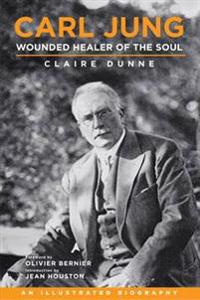Collected Works of C.G. Jung, Volume 12: Psychology and Alchemy (Inbunden)
avCarl Gustav Jung, C. G. Jung, William McGuire
ISBN: 9780691097718 - UTGIVEN: 196808A study of the analogies between alchemy, Christian dogma, and psychological symbolism. Revised translation, with new bibliography and index.[...]
Collected Works of C.G. Jung, Volume 15: Spirit in Man, Art, and Literature (Inbunden)
avCarl Gustav Jung, C. G. Jung, Michael Fordham
ISBN: 9780691097732 - UTGIVEN: 196612Nine essays, written between 1922 and 1941, on Paracelsus, Freud, Picasso, the sinologist Richard Wilhelm, Joyce's Ulysses, artistic creativity generally, and the source of artistic creativity in archetypal structures.[...]
Collected Works of C.G. Jung, Volume 8: Structure & Dynamics of the Psyche (Inbunden)
avCarl Gustav Jung, C. G. Jung, Michael Fordham
ISBN: 9780691097749 - UTGIVEN: 197001A revised translation of one of the most important of Jung's longer works. The volume also contains an appendix of four shorter papers on psychological typology, published between 1913 and 1935.[...]
Collected Works of C.G. Jung, Volume 7: Two Essays in Analytical Psychology (Inbunden)
avCarl Gustav Jung, C. G. Jung, Adler Gerhard
ISBN: 9780691097763 - UTGIVEN: 1967-02Provides insight into the development of Jung's thought on the psychology of the unconscious and its relation to the ego[...]
Collected Works of C.G. Jung, Volume 18: The Symbolic Life: Miscellaneous Writings (Inbunden)
avCarl Gustav Jung, C. G. Jung, William McGuire
ISBN: 9780691098920 - UTGIVEN: 197702This volume is a miscellany of writings that Jung published after the Collected Works had been planned, minor and fugitive works that he wished to assign to a special volume, and early writings that came to light in the course of research.[...]
Collected Works of C.G. Jung, Volume 19: General Bibliography. (Revised Edition) (Inbunden)
avLisa Ress, Carl Gustav Jung, C. G. Jung
ISBN: 9780691098937 - UTGIVEN: 197904As a current record of all of C. G. Jung's publications in German and in English, this volume will replace the general bibliography published in 1979 as Volume 19 of the Collected Works of C. G. Jung. In the form of a checklist, this new volume records through 1990 the initial publication of each or[...]
C.G. Jung Letters, Volume 1 (Inbunden)
avCarl Gustav Jung, C. G. Jung, Aniela Jaffe
ISBN: 9780691098951 - UTGIVEN: 1992-06Beginning with Jung's earliest correspondence to associates of the psychoanalytic period and ending shortly before his death, the 935 letters selected for these two volumes offer a running commentary on his creativity. The recipients of the letters include Mircea Eliade, Sigmund Freud, Esther Hardin[...]
The Portable Jung (Häftad)
avCarl Gustav Jung, Joseph Campbell
ISBN: 9780140150704 - UTGIVEN: 197612This comprehensive collection of writings by the epoch-shaping Swiss psychoanalyst was edited by Joseph Campbell, himself the most famous of Jung's American followers. It comprises Jung's pioneering studies of the structure of the psyche--including the works that introduced such notions as the colle[...]
The Psychology of Kundalini Yoga: Notes of the Seminar Given in 1932 by C. G. Jung (Häftad)
avCarl Gustav Jung, Sonu Shamdasani
ISBN: 9780691006765 - UTGIVEN: 199907"Kundalini yoga presented Jung with a model of something that was almost completely lacking in Western psychology--an account of the development phases of higher consciousness.... Jung's insistence on the psychogenic and symbolic significance of such states is even more timely now than then. As R. D[...]
Jung's Seminar on Nietzsche's "Zarathustra": (Abridged Edition) (Häftad)
avCarl Gustav Jung, James L. Jarrett
ISBN: 9780691017389 - UTGIVEN: 199711Nietzsche's infamous work "Thus Spake Zarathustra" is filled with a strange sense of religiosity that seems to run counter to the philosopher's usual polemics against religious faith. For some scholars, this book marks little but a mental decline in the great philosopher; for C. G. Jung, "Zarathustr[...]
Collected Works of C.G. Jung, Volume 20: General Index (Inbunden)
avGerhard Adler, Barbara Forryan, Carl Gustav Jung
ISBN: 9780691098678 - UTGIVEN: 1979-04An exceptionally comprehensive index by paragraph numbers. Certain subjects are treated in separate sub-indexes within the General Index. These include alchemy, animals, the Bible, colors, Freud, Jung, and numbers.[...]
Visions: Notes of the Seminar Given in 1930-1934 by C. G. Jung (Inbunden)
avCarl Gustav Jung, Claire Douglas, Claire Douglas
ISBN: 9780691099712 - UTGIVEN: 1997-12For C. G. Jung, the beautiful and gifted 28-year-old Christiana Morgan was an inspirational and confirming force whose path in self-analysis paralleled his own quest for self-knowledge. By teaching Morgan the trance-like technique of active imagination, Jung launched her on a pilgrimage of archetypa[...]
Jung: An Introduction Into the World of Carl Jung: The Shadow, the Archetypes and the Symbols (häftad)
ISBN: 9781539167839 - UTGIVEN: 2016-09The Red Book (Inbunden)
avCarl Jung
ISBN: 9780393065671 - UTGIVEN: 200910When Carl Jung embarked on the extended self-exploration he called his 'confrontation with the unconscious', the heart of it was "The Red Book", a large, illuminated volume he created between 1914 and 1930. Here he developed his principal theories - of the archetypes, the collective unconscious and [...]
Paul Tillich, Carl Jung, and the Recovery of Religion (Pocket)
avJohn P. Dourley
ISBN: 9780415460248 - UTGIVEN: 2008-07Is religion a positive reality in your life? If not, have you lost anything by forfeiting this dimension of your humanity? This book compares the theology of Tillich with the psychology of Jung, arguing that they were both concerned with the recovery of a valid religious sense for contemporary cultu[...]
Carl Jung and Maximus the Confessor on Psychic Development (Pocket)
avG. C. Tympas
ISBN: 9780415625173 - UTGIVEN: 2014-03In what ways does psychological development differ from spiritual development and psychological experience from spiritual experience? Bringing together two disparate theories under a trans-disciplinary framework, G. C. Tympas presents a comparison of Carl Jung's theory of psychic development and Max[...]
Reading Lu Xun Through Carl Jung
ISBN: 9781604979374 - UTGIVEN: 2018-03This book is in the Cambria Sinophone World Series, headed by Victor Mair (University of Pennsylvania).Lu Xun, a founder of modern Chinese literature, lived through a pivotal moment in Chinese history. He attributed his motivation for a career in literature to his desire to cure the spirits of the C[...]
Carl Jung (Häftad)
ISBN: 9781780232676 - UTGIVEN: 2014-02Carl Gustav Jung (1875 - 1961), as well as being one of the pioneers of psychology, is one of the most controversial of thinkers: in spite of being largely responsible for the introduction of now-familiar psychological terms such as 'extrovert' and 'introvert', Jung has often been sidelined, remaini[...]
Carl Jung
ISBN: 9781780233079 - UTGIVEN: 2016-03Swiss-born Carl Gustav Jung (1875-1961) was one of the pioneers of psychology, largely responsible for the introduction of now-familiar psychological terms such as "e;introvert,"e; "e;extrovert,"e; and "e;collective unconscious."e; But in spite of this, Jung has often remaine[...]
Carl Jung: Wounded Healer of the Soul (Inbunden)
avClaire Dunne
ISBN: 9781780281148 - UTGIVEN: 201205This beautifully illustrated biography tells the story of one of the most influential thinkers of the 20th century. Carl Jung continues to be revered today as a true revolutionary who changed our views of psychology, introduced the West to Eastern spirituality and brought into general awareness such[...]
Carl Jung
ISBN: 9781780288314 - UTGIVEN: 2015-11This is the essential fully illustrated biography of Carl Jung - one of the world's most influential thinkers and a founding father of psychology. It offers a unique insight into Jung's life and work, featuring generous excerpts from his writings and letters, and reveals Jung as seen by those who kn[...]

